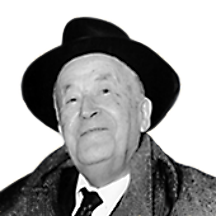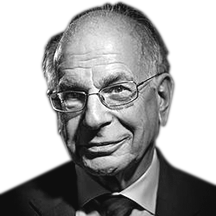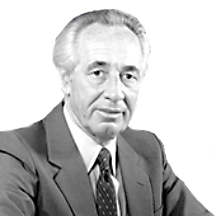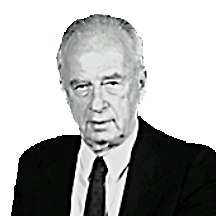Found 4 Results

Agnon Shmuel Yossef
Shmuel Yossef Czaczkes was born in 1888 in the Jewish town of Buczacz in Eastern Galicia. His father, Mordehai Czaczkes, a fur merchant and a scholar, open to all prevailing streams of orthodox Jewish thought and even to the moderate Enlightenment, introduced his son to traditional Jewish culture. His mother was an enlightened Jew and familiarized him with European literature and culture.
Shmuel Yossef began writing in his youth. He once remarked, “I wrote a poem or a story on every piece of paper that I could find”. He published his first poem at the age of 16, and from then on, did not stop writing stories and poems in Hebrew and Yiddish.
At the age of 19, he went to Eretz Israel and settled in Jaffa where he became close to the new immigrants of the pioneer movement.
“Forsaken Wives”, his first story published in Eretz Israel, was enthusiastically received. Following its publication, Czaczkes adopted the pseudonym of Agnon based on its Hebrew title “Agunot “.
In 1913, Agnon went to Germany, where he married his wife Esther Marx, who came from an established family. During this period, he met Salman Schocken who later became his publisher. In 1924, Agnon’s house in Hamburg was burnt down, destroying his extensive library and manuscript collection . Then he returned to Eretz Israel and settled in Jerusalem, where he resumed his religious way of life. He continued to write until his death in 1970.
In 1966, Agnon was the first Hebrew writer to receive the Nobel Prize “for his profoundly characteristic narrative art with motifs from the life of the Jewish people.”
At the award ceremony, Agnon observed: “Due to a historical catastrophe… I was born in a town in the Diaspora… But I always felt that I was born in Jerusalem. I dreamed I was standing among the Levites in the Temple, singing the psalms of David, King of Israel”.
Agnon wrote six major novels portraying Jewish life in Galicia, Germany and Israel.
“The bridal Canopy”: An epic depicting 19th century Galician Jewry as seen through the eyes of a chassid, Reb Yudel.
“A single Story”: A love story set against the backdrop of Jewish life in Buczacz at the turn of the century.
“A Guest for the Night”: the story of the decline of Jewish life in the towns of Poland. (There are those who claim that, in this book, Agnon foresaw the coming of the Holocaust.
“Only Yesterday”: A book filled with color and shadows on the pioneers’ period in the Turkish Palestine.
“Shira”: magical images of Jerusalem during the 1940’s.
“In the Store of Mr. Lublin“: Life in Germany during World War I.
In the course of his life, Agnon published eight volumes of novels, novellas and short stories. Eight additional volumes were published posthumously.
Agnon’s writing has its own original and unique style – a wonderful blend of the language of the Mishna, medieval and chassidic literature and modern Hebrew.
Agnon was a master storyteller with a keen, and, at times, deadly, eye. His stories are gripping, surprising and shocking with a grotesque kind of humor – laughter mixed with tears. In his tales, it is often difficult to distinguish between reality and illusion, particularly in his work of fantasy “The Book of Deeds“.
In a speech before the Nobel Prize ceremony, Agnon declared: “Who were my teachers of poetry and literature? Who inspired me? Every man, woman and child whom I have ever met, both Jew and non-Jew; conversations with people, the stories of their lives engraved in my heart and flow from my pen”.

Kahneman Daniel
Ever since Daniel Kahneman was a child, his mother’s words echoed in his mind: “people are greatly complicated and enormously interesting”. Knowing deep inside, even as a young boy, that moms are always right, he decided to make it his mission to get to the bottom of the human mind, thus he studied psychology. Memorizing each and every verse by Freud & co., and after receiving his doctorate, he narrowed it all down to one fundamental question: why do people make the choices they make?
Kahneman and his partner, Amos Tversky ran hundreds of researches, all of which yielded the same outcome: people’s decisions are based on almost everything but rationality: anger, disappointment, optimism, envy, dignity. His revolutionary studies focused on Behavioral Economics. In simple words: what goes on in our minds when we shop? Kahneman demonstrated how at the shopping process, the price of a products is not at the top of our considerations. An old friend we ran into before entering the store; a few tough words from the boss the day before; or a product that some else standing next to us was buying – to name just a few factors – might effect our choices.
In 2002, the Swedish Nobel Committee decided to award Kahneman the prize, even though he never even took one introduction course in economy.
After receiving the award, Kahneman said that the prize committee’s irrational choice proves his theory best: Always listen to mom!

Peres Shimon
Shimon Peres was born in 1923 in Vishneva, Poland, and at the age of 11 settled in what was then Palestine. He was a pupil at the “Geoula” school in Tel-Aviv and later at the Ben Shemen youth village. As a member of a youth group he joined Kvutsat Alumot in the Galiliee.
On the eve of the establishment of the state of Israel, David Ben-Gurion, extremely impressed by the young and talented Peres, recruited him for some missions within the framework of the Hagana. Peres rapidly made a name for himself as a man of administrative and intellectual capacity in whom Ben-Gurion had complete faith and who became his confidant in matters concerning the ministry of defense. Within a few years Shimon Peres became director general of the ministry and later, Deputy Minister of Defense.
Peres devoted himself to ensuring that Israel received modern weapons systems from abroad, and later through the establishment of the Israel Defense Industries, and through a nuclear research infrastructure.
After the Yom Kippur War, Shimon Peres was appointed minister of defense in the first government formed by Yitsshak Rabin, and in this capacity he orchestrated “Operation Jonathan” to free the Israeli hostages being held in Entebbe, Uganda.
Following the election upset that brought Menachem Begin to power, Peres became leader of the defeated labor party. It was the previously Hawkish Peres who categorically declared, that world reality had changed and that a strong Israel was sufficient in order for it not to flinch from the creation of a new peaceful Middle East.
Following the formation of the National Unity government in 1984, he was prime minister for the first two years and then in accordance with the rotation agreement between him and Yitshak Shamir, he then became foreign minister and later minister of finance.
In 1992, with the election victory of the Labor Party led by Yitshak Rabin, Peres was again appointed foreign minister and after many years of conflict between the two leaders, an agreed division of spheres of activity was created which led to cooperation and friendship.
Minister of Foreign Affairs, Shimon Peres , was active on all levels in order to accelerate the peace process. His efforts bore fruit, and after a century of hostility, a dramatic turning point was reached at Oslo with the mediation of the Norwegian foreign minister: talks were held between the Palestine Liberation Organization, headed by Yasser Arafat, and an official Israel, and a declaration of principles was signed prior to a permanent arrangement between the two peoples.
The first steps on the road to an agreed solution of the Palestinian problem led the way to the signing, in October 1994, of a full peace treaty between the State of Israel and the Hashemite Kingdom of Jordan and the slow development of normal relations with the majority of the Arab nations.
This historical dialogue won international acclaim when Shimon Peres, Yitshak Rabin and Yasser Arafat were awarded the 1994 Nobel peace prize for their courage on the way to the desired goal.
The peace process, however, met opposition from radical elements on both sides. Besides increased Arab terrorism, extremist Jewish circles mounted an unbridled campaign of incitement that reached its climax with the assassination of Prime Minister Yitshak Rabin on October 4, 1995.
Shimon Peres’s nomination as prime minister was approved by the Kenesset almost unopposed, and he declared his determination to maintain and accelerate the peace process with all Israel’s Arab neighbors.

Rabin Yitshak
Yitshak Rabin was born in Jerusalem in 1922. He was a pupil at the Tel Aviv “School for Worker’s Children” and later studied at the Kadoorie Agricultural College. He joined the Palmach in 1940 and participated both as a soldier and commander, in numerous daring operations. In 1947, he was appointed deputy-commander of the Palmach and in 1948, when he was only twenty-six years old, he commanded the Harel Brigade which took part in the fight for Jerusalem.
With the establishment of the Israel Defense Forces, Yitshak Rabin filled numerous posts and in 1964 was appointed the IDF’s seventh Chief of Staff. In 1967, in the Six-Day War, he led the IDF to a brilliant and lightning victory over the Egyptian, Syrian, and Jordanian armies, in which the crowning glory was the reunification of Jerusalem. The speech given by Yitshak Rabin on Mount Scopus, upon receiving an honorary doctorate from the Hebrew University, symbolized and underscored the humanistic heritage that guided the Jewish fighting man and woman.
Rabin retired from the army in 1968, to become Israel’s ambassador in the United States. In 1973 He was elected to the Knesset and served for a short time as minister of labor in Golda Meir’s government.
In the wake of the military disaster of the Yom Kippur War, Golda Meir resigned and Yitshak Rabin was rocketed to the Prime Minister’s Office. It was during his term of office that Israel signed the Disengagement of Forces Agreements with Egypt and Syria.
Rabin resigned the premiership in 1977 and in 1992, when the Labor Party returned to power, he returned as Prime Minister, vowing to push forward the peace process with the Arab nations, that had begun at the 1991 Madrid Conference.
The Rabin’s government’s most significant achievement was the historic turning point in the relations between Israel and the Palestinians. Total hostility changed to open negotiations which led, in September 1993, to the famous handshake between Yitshak Rabin and Yasser Arafat in Washington, and to the signing of the Declaration of Principles which led the way to a five-year interim agreement prior to a permanent arrangement between Israel and the Palestinians.
The first steps on the road to an agreed solution of the Palestinian problem led the way to the signing, in October 1994, of a full peace treaty between the State of Israel and the Hashemite Kingdom of Jordan and the slow development of normal relations with the majority of the Arab nations.
This historical dialogue won international acclaim when Yitshak Rabin, Shimon Peres and Yasser Arafat were awarded the 1994 Nobel peace prize for their courage in surmounting all obstacles and achieving the desired goal.
The peace process, however, met with increased Arab terrorism and intense opposition from both radical religious and right-wing circles and the opposition parties in Israel.
On Saturday evening, November 4, 1995, at the conclusion of a huge rally in support of the peace process, a member of a right-wing religious group infiltrated the ring of security men around the prime minister and fired three fatal shots at him.
Deep national mourning, the like of which had never previously been experienced, enveloped the citizens of Israel. There was great sorrow at the loss of a courageous and beloved leader, a fighter who had led his people in times of war, and a statesman who had had the wisdom to lead them towards peace.
Rabin’s death revealed the depth of identification of the young people of Israel with his straightforward personality and his ‘sabra’ image, and their belief in, and desire for, peace.

free text
Select a Nobel category:
- Chemistry
- Economics
- Literature
- Medicine
- Peace
- Physics
Select first letter of winner's name:
- A
- B
- C
- D
- E
- F
- G
- H
- I
- J
- K
- L
- M
- N
- O
- P
- Q
- R
- S
- T
- U
- V
- W
- X
- Y
- Z
Search Results
Found 0 Results
No search results

region on map
